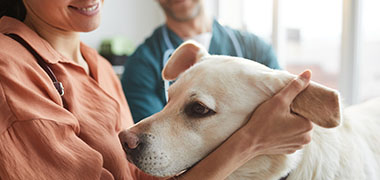
This role has a moderate level of AI exposure. AI can enhance efficiency for some tasks, but this job still relies on human skills and decision-making.
Explore all careersA Wildlife Rehabilitator cares for injured or orphaned wildlife, providing medical treatment and rehabilitation to prepare them for release into their habitats.
Get qualified to work as a Wildlife Rehabilitator with a course recognised across Australia. Speak to a training provider to learn more.



Browse occupations related to Wildlife Rehabilitator



For those passionate about animal welfare and looking to make a difference in the lives of wildlife, pursuing Wildlife Rehabilitator courses in Bunbury is a significant first step. These specialised programs focus on equipping students with the essential skills and knowledge required for effectively caring for injured or orphaned wildlife. The courses available in Bunbury, a vibrant coastal city in Western Australia, prepare individuals for meaningful careers in the field and deepen their understanding of animal behaviours and rehabilitation techniques.
In addition to core training as a Wildlife Rehabilitator, students may benefit from exploring related fields of study, such as Animal Welfare and Veterinary courses or Animal Care. These courses provide a comprehensive backdrop against which aspiring rehabilitators can build their expertise. By diversifying their knowledge, students increase their employability and versatility within the industry, opening doors to various animal care roles.
Alongside Wildlife Rehabilitator courses, Bunbury offers opportunities to explore various related job roles including Pet Groomer, Animal Attendant, and Kennel Hand. Each of these positions contributes to animal welfare, making them ideal for those who have a deep-rooted passion for caring for animals, whether domesticated or wild.
The wildlife rehabilitation field is not solely limited to direct animal care. Many individuals may find themselves drawn to careers such as Cattery Attendant, Kennel Attendant, or Wildlife Carer. As these roles often overlap with wildlife rehabilitation, they can provide invaluable experience that supports a student’s progression towards becoming a fully qualified Wildlife Rehabilitator.
For those who have ambitions of working in a more structured environment, pursuing additional roles such as Zoo Keeper, Animal Technician, or even Zoologist may also be worthwhile paths. Each of these options not only contributes to wildlife conservation but also enhances the overall understanding of ecosystem dynamics within the beautiful surroundings of Bunbury, making it a rewarding place for aspiring wildlife professionals. Embarking on a Wildlife Rehabilitator course thus not only serves a personal ambition but also plays a crucial role in professional animal care in the local community.